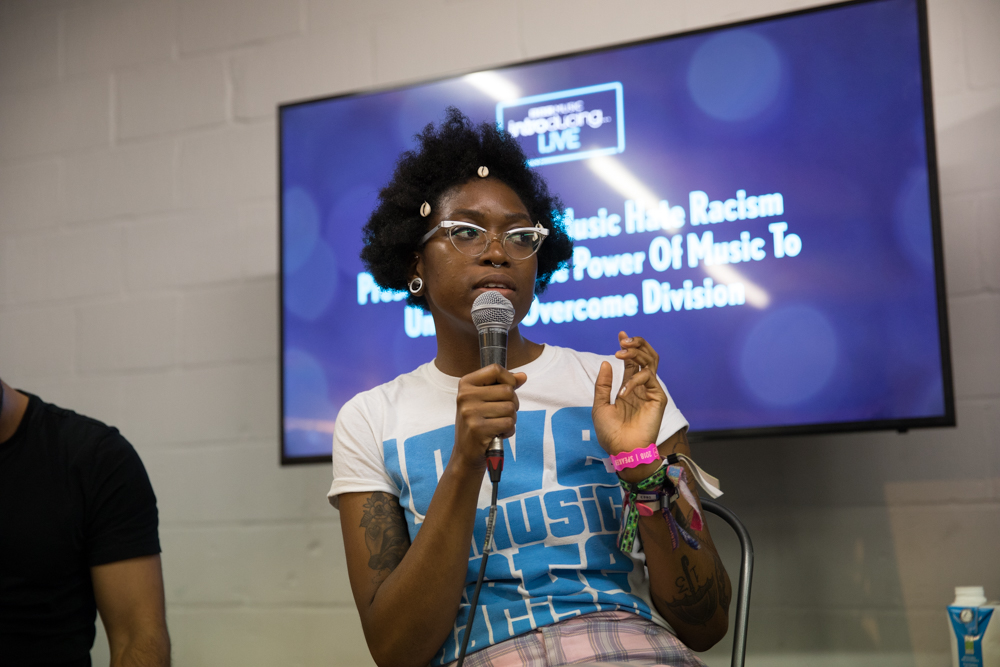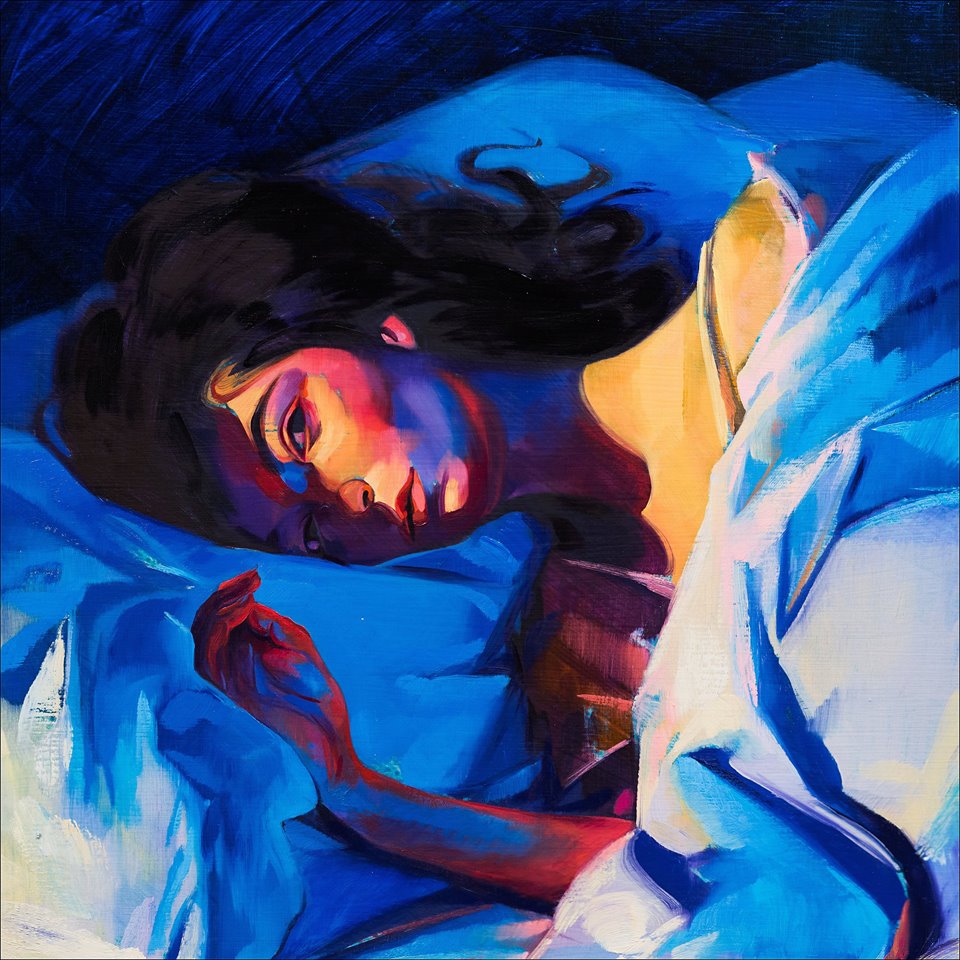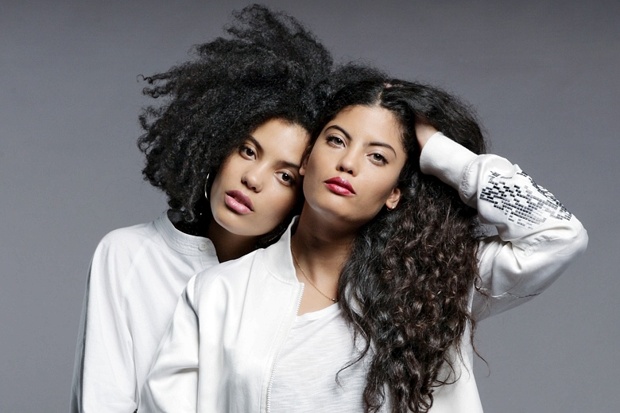
Organisation Love Music, Hate Racism spoke about breaking the divide of race within the music industry. Whether that’s rooted in the labels’ influence or how the artists approach the music they write, they discussed how social justice through the ‘language of music’ can be used to invoke change.
When I went to this talk, the topic began to frustrate me because I’ve been to many talks on race and they all seem to be saying the same thing but I don’t often see any changes. However, I began to understand that it’s more about using music as a tool to spread change and invoke meaningful content in the mainstream rather than just focusing on the ‘niche’ audiences. We’ve got to break into spaces we wouldn’t otherwise occupy – but it’s not that straightforward because the focus is predominantly what the audience want.
Ewan from reggae group – Kioko described the process of using music to tackle social change as a frustrating when, “Too many people are writing tunes about big bottom girls, not enough are writing about things that matter.” It seems that the kind of music he describes gains more traction than others unless you’re Kendrick Lamar or Childish Gambino.
They went on to discuss how struggles within the industry with representation and genre-specific music that’s either ‘black music’, ‘asian music’ or mainstream pop. Songwriter and producer Amaroun expressed this openly, “I create indie pop music but I still get people asking if I make R&B or Hip-Hop.” Whilst this can be disheartening for artists because they just want their music to be played without being confined to a genre. Despite people listening to a variety of playlists, it has brought about some influential changes.
An example they drew upon was Afropunk festival. African Americans found themselves face-to-face with the predominantly white punk groups and wanted to create a space where black punk groups could feel represented. I don’t see it as a massive issue today where Afropunk seems to meld genres and create a strong community for black identities. However, there still seems to be a stigma over rock and metalcore music for black communities which has been challenged by artists like Princess Nokia with her album ‘A Girl Cried Red’.
If there was anything to take away from this talk it was Laurence, from Kioko, concluding with an extravagant, “Just play our music, man!” As that’s what it’s all about.


